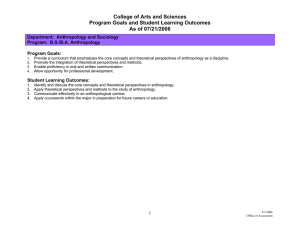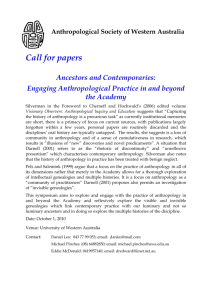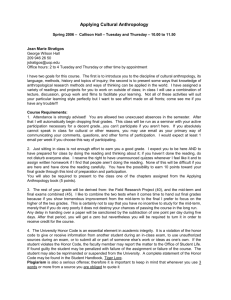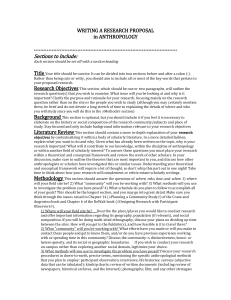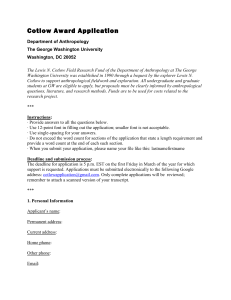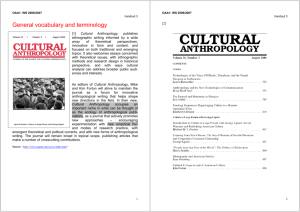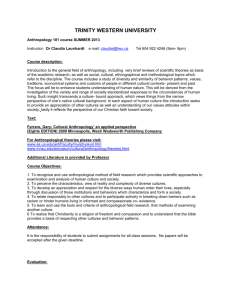AnthGoals
advertisement
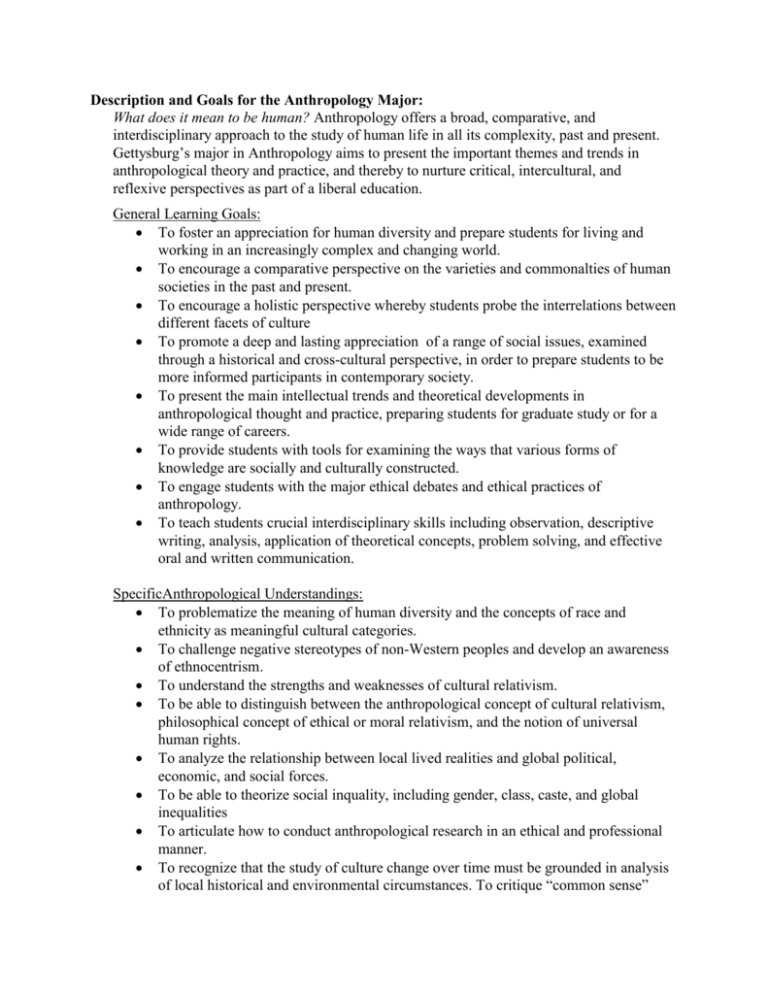
Description and Goals for the Anthropology Major: What does it mean to be human? Anthropology offers a broad, comparative, and interdisciplinary approach to the study of human life in all its complexity, past and present. Gettysburg’s major in Anthropology aims to present the important themes and trends in anthropological theory and practice, and thereby to nurture critical, intercultural, and reflexive perspectives as part of a liberal education. General Learning Goals: To foster an appreciation for human diversity and prepare students for living and working in an increasingly complex and changing world. To encourage a comparative perspective on the varieties and commonalties of human societies in the past and present. To encourage a holistic perspective whereby students probe the interrelations between different facets of culture To promote a deep and lasting appreciation of a range of social issues, examined through a historical and cross-cultural perspective, in order to prepare students to be more informed participants in contemporary society. To present the main intellectual trends and theoretical developments in anthropological thought and practice, preparing students for graduate study or for a wide range of careers. To provide students with tools for examining the ways that various forms of knowledge are socially and culturally constructed. To engage students with the major ethical debates and ethical practices of anthropology. To teach students crucial interdisciplinary skills including observation, descriptive writing, analysis, application of theoretical concepts, problem solving, and effective oral and written communication. SpecificAnthropological Understandings: To problematize the meaning of human diversity and the concepts of race and ethnicity as meaningful cultural categories. To challenge negative stereotypes of non-Western peoples and develop an awareness of ethnocentrism. To understand the strengths and weaknesses of cultural relativism. To be able to distinguish between the anthropological concept of cultural relativism, philosophical concept of ethical or moral relativism, and the notion of universal human rights. To analyze the relationship between local lived realities and global political, economic, and social forces. To be able to theorize social inquality, including gender, class, caste, and global inequalities To articulate how to conduct anthropological research in an ethical and professional manner. To recognize that the study of culture change over time must be grounded in analysis of local historical and environmental circumstances. To critique “common sense” Department of Sociology and Anthropology Anthropology Major Proposal notions of progress, cultural superiority, and evolution. To be able to articulate the theoretical import of core issues in anthropology and the way that anthropologists have developed, modified, and critiqued these ideas over time. These central concerns include the tension between materialist versus ideational/symbolic perspectives on culture; the relationship between individual and society; the importance of emic versus etic perspectives, and the validity of a functionalist approach to the analysis of society. 2
